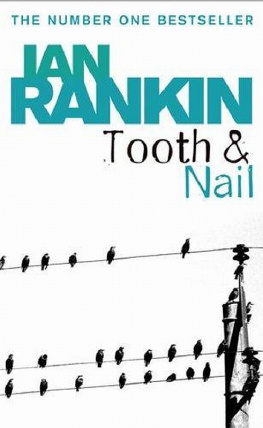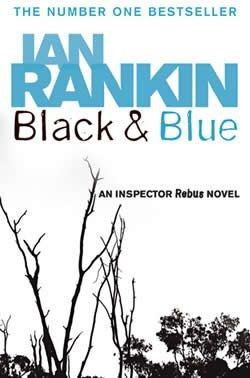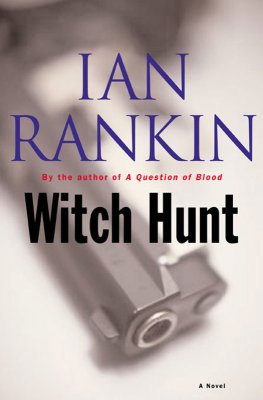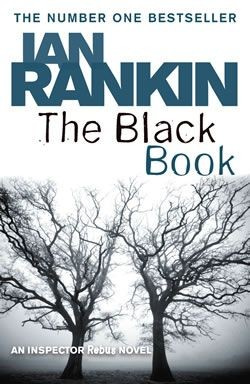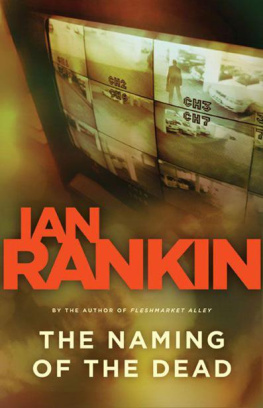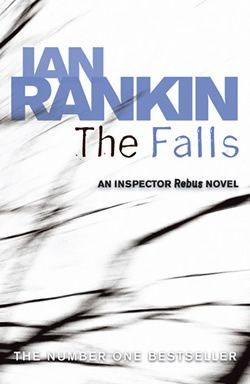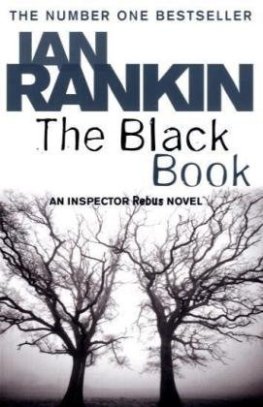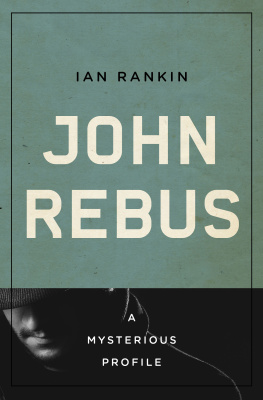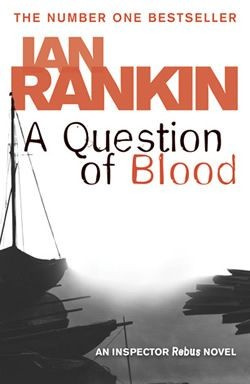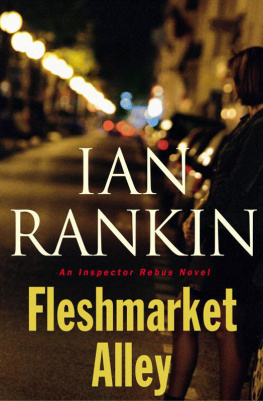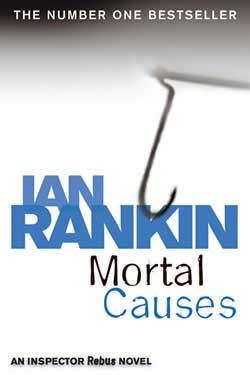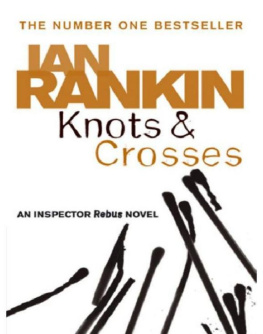Ian Rankin
The Beat Goes On
A few words about these stories.
Dead and Buried, which opens this collection, is one of the most recent stories Ive written. Weve placed it at the very start because it takes place in the mid-1980s, when Rebus was learning the ropes at Summerhall police station (as featured in my novel Saints of the Shadow Bible). There then follow the twelve stories from my collection A Good Hanging and Other Stories. These were written to comprise a chronological year in Rebuss life, so Playback is set in March, A Good Hanging in August (while the Festival Fringe is in full swing as it were), and Auld Lang Syne in December. After this come seven stories from Beggars Banquet along with the novella Death is Not the End (part of which ended up cannibalised in my novel Dead Souls). Additionally, weve included six uncollected stories these were mostly written for magazines and newspapers, sometimes for the Christmas edition, which is why the festive season crops up. Then there are two brand new stories The Passenger and A Three-Pint Problem. The final story in the collection, The Very Last Drop, is set immediately after Rebuss retirement at the end of Exit Music and was written to be read aloud at a charity night at Edinburghs Caledonian Brewery youll see why when you reach it.
I hope you get as much fun reading these stories as I had writing them.
Ian Rankin
Colder than an ex-wifes kiss, Detective Inspector Stefan Gilmour muttered, shuffling his feet and rubbing his hands.
I wouldnt know, Rebus replied. His own hands were pushed deep into the pockets of his coat. It was 3 p.m. on a winter afternoon, and the lights in the prison yard had already been switched on. Faces sometimes appeared at the barred windows, accompanied by curious looks and gestures. The mechanical digger was making slow progress, workmen with pickaxes standing ready.
I keep forgetting youre still married, Gilmour commented. Thatll be for the sake of your daughter, eh?
Rebus glowered at him, but Gilmour was focusing his attention on the unmarked grave. They were in an unused corner of the grounds of HMP Saughton, close by its high sheer walls. The guards who had brought them to the spot had vanished indoors again sharpish. In place of a hearse, the undertaker had provided a pale blue van pockmarked with rust. It carried a cheap, plain coffin, since nobody reckoned much would remain of the original. Twenty years back Joseph Blay had been hanged not fifty yards away, one of the last men to be executed in Scotland. Rebus had been shown the hanging shed on a previous visit to the prison. It was still, hed been informed, in full working order should capital punishment make a comeback.
The digger scraped at the ground again, and this time threw up some long splinters of wood. One of the workmen gestured for the driver to lift the arm away, before climbing into the hole, accompanied with some apparent reluctance by his younger colleague. As they worked with their pickaxes, more of the coffin was revealed, some sections intact. There was no smell at all, not that Rebus could pick up. The first he saw of Joseph Blay was a shank of hair with the skull below. The fresh coffin had been produced from the back of the van. Nobody was here to loiter. Blay wore a dark suit. Rebus didnt know what hed expected from the exhumation: worms emerging from eye sockets maybe, or the stench of putrefaction. He had been steeling himself all morning, forgoing breakfast and lunch so thered be nothing for him to bring up. But all he was looking at was a skeleton in a cheap suit, resembling the prop from some medical students prank.
Afternoon, Joe, Gilmour said, giving a little salute.
After a few more minutes, the workmen were ready to lift the body. Blays trousers and suit jacket seemed stuck to the ground beneath, but eventually came free. The remains were treated with neither great reverence nor any disrespect. The deceased was a job, and that job would be carried out with brisk efficiency before any of the living participants froze to death.
Whats that? Rebus asked, nodding towards the hole. Gilmour narrowed his eyes, then clambered into the trench, crouching to pick up a pocket watch on a chain.
Probably in his jacket, he said, offering his free hand to Rebus so he could be helped back up. The lid had already been placed on the new coffin and it was being loaded into the van.
Where will he end up? Rebus asked.
Gilmour shrugged. Nowhere worse than this, he offered, returning the sombre stare of one of the old lags at a second-storey window.
Hard to disagree, Rebus said. The diggers engine had started up again. There was a hole to be refilled.
At a pub near Haymarket Station, Gilmour ordered Irish coffees. The coffee was instant and the cream UHT, but with an extra slug of Grouse in each mug it might just do the job. There was no fire as such, but radiator pipes hissed away under the row of bench seats, so they sat side by side and slurped. Rebus had lit a cigarette and could feel his whole face tingling as he began to thaw.
Remind me, he said eventually. What the hell just happened?
Its how they did it back then, Gilmour obliged. When you were hanged, you went to a grave inside the prison grounds. Joseph Blay killed a man who owed him money. Went to his house and stabbed him. Found guilty and sentenced to the scaffold.
And this was in 63?
Gilmour nodded. Twenty years back. Charlie Cruikshank was in charge of the case. Hes dead now, too heart attack a couple of years ago.
Ive heard of him.
Taught me everything I know. Man was a legend in the Edinburgh Police.
Did he attend the execution?
Gilmour nodded again. He always did. When he used to talk about them, you could tell he thought wed made a big mistake doing away with them. Not that he thought it was a deterrent. Ive not met many killers who paused beforehand to consider the consequences.
So for him it was what? A vengeance sort of thing.
Well, it stopped them getting into any more bother, didnt it? And saved all of us the cost of their upkeep in the nick.
I suppose.
Gilmour drained his glass and told Rebus it was his round.
Same again?
Aye, but without the coffee and the cream, Gilmour responded with a wink.
When Rebus returned from the bar with their whiskies, he saw that Gilmour was playing with the pocket watch, trying to prise it open.
I thought you handed it over, Rebus commented.
You think hell miss it?
All the same...
Hells teeth, John, its not like its worth anything. Case looks like pewter. Here, you have a go. He handed the watch to Rebus and went to ask the barman for a knife. The timepiece had very little weight to it and no markings that Rebus could see. He worked at it with his thumbnail without success. Meantime, the barman had offered up a small screwdriver. Gilmour took back the watch and eventually got it open. The glass was opaque, the face discoloured and water damaged. The hands had stopped at quarter past six.
No inscription, Gilmour said.
Must have had sentimental value at least, Rebus offered. For him to be buried with it. His dads maybe, or even his granddads?
Gilmour rubbed his thumb across the glass, turning the watch in his hand. Then he got busy with the screwdriver again, until the mechanism came free from its casing. An inch-long cardboard rectangle was stuck there. It came apart in the process, adhering to both the workings of the watch and the inner case. If there had been any writing on it, the words had long faded.
What do you reckon? Gilmour asked.
Is there something Im not seeing here, Stefan? Rebus asked in return.
Youre the detective, John. Gilmour placed the watch on the table between them. You tell me.


